The New Classics: Oslo, August 31
 Tuesday, June 16, 2020 at 12:30PM
Tuesday, June 16, 2020 at 12:30PM Michael Cusumano here for the 30th episode of The New Classics.
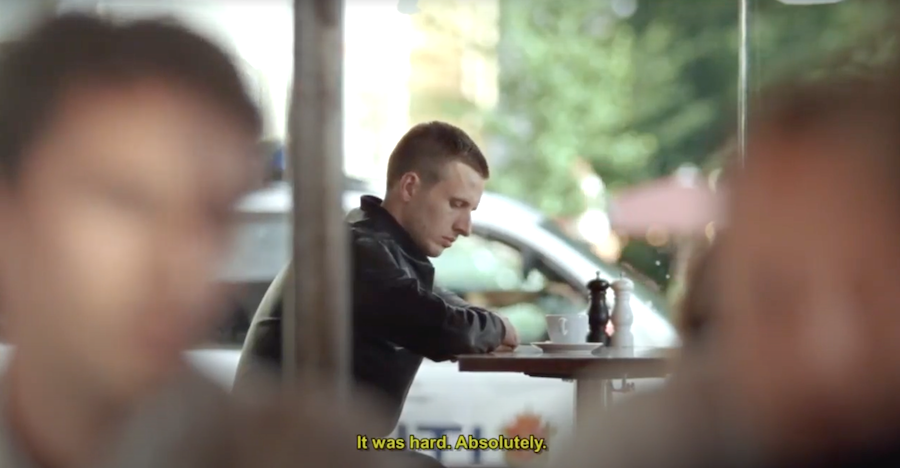
It was hard. Absolutely.
Scene: The Bucket List
Halfway through Joachim Trier’s Oslo, August 31 we get an extended scene of the protagonist, Anders (Anders Danielsen Lie), sitting in a cafe and simply listening to the other patrons talk. He appears perfectly ordinary sitting there. Just a guy in a cafe. What we in the audience know, which everyone who meets him on this fateful day does not, is that Anders started the day by filling his pockets with rocks and wading into a lake, attempting suicide a la Virginia Woolf. He couldn't go through with it and spends the rest of the film teetering quietly on the brink...
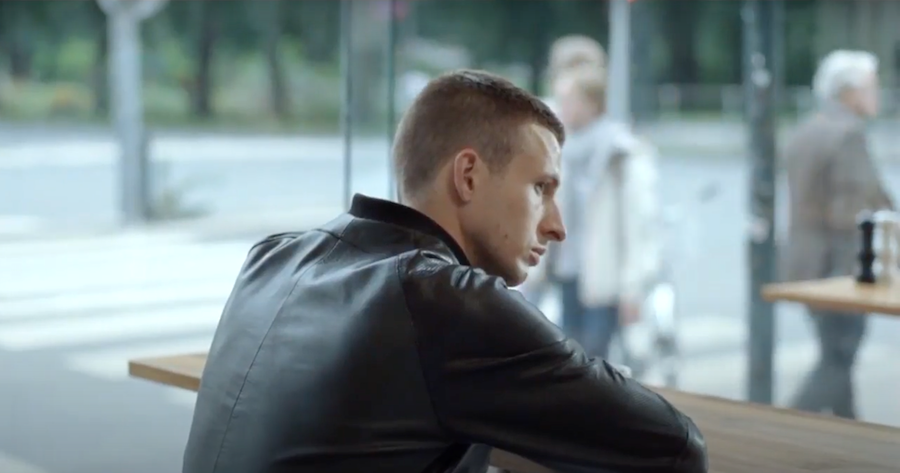
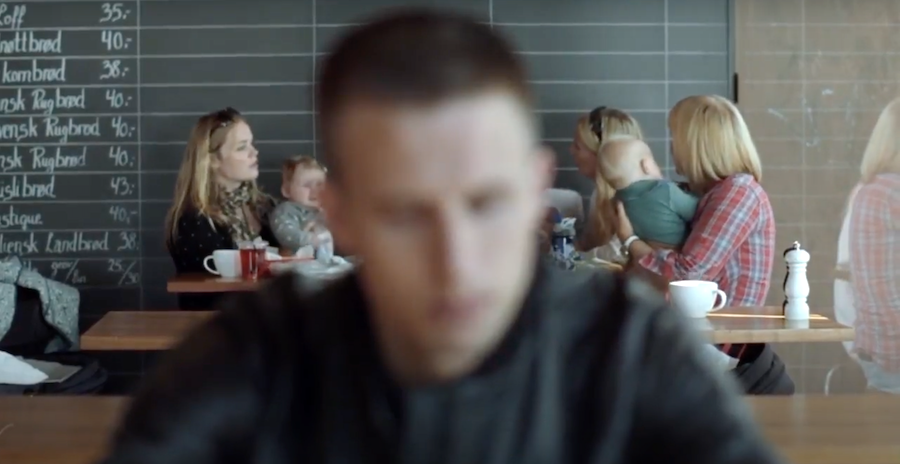
The cafe immediately follows the scene to which the first half of the film builds. Anders has nearly completed a stint in a rehab center for substance abuse, and is out on a pass for a job interview. We root for him to succeed and the interview goes well at first, but at the mention of his substance abuse you can feel Anders implode. He scuttles the interview and walks out, his failure such a foregone conclusion in his mind that he opts for self-destruction, just to get the suspense over with.
Which is how we find ourselves in that cafe, like Anders, not having any idea where the story goes from here. The story, it turns out, doesn’t go anywhere for a few minutes...
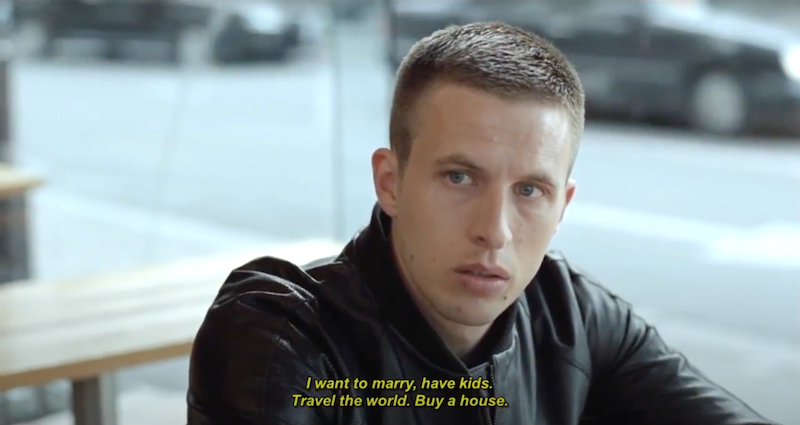
I want to marry, have kids. Travel the world. Buy a house.
We move in tight on Anders as he watches passersby on the street and eavesdrops on the other patrons. There’s a couple on a first date, a group of mothers discussing kindergarten. We see flashes of passerby continuing on with their day as Anders imagines it, completing mundane tasks. Perhaps he wants to pretend for a few blessed minutes that he is one of them. They all look so carefree, their lives consumed with trivialities. Or maybe he has no such illusions and merely wants to sit back and marvel that people can live so blissfully free of the weight he carries. Even their problems (one woman is going through a break-up) aren’t real problems from where he's sitting.
Eventually we settle on one young lady reading a list which we quickly grasp is a rundown of all the things she wants to do in her life. Her eyes keep scanning her companion for reactions, to see if she thinks it’s silly. She is almost angelic in her naive optimism.
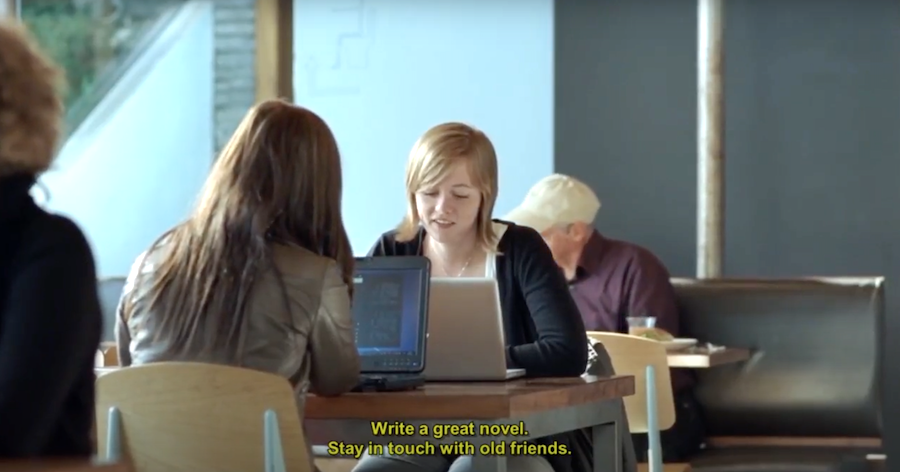
Write a great novel. Stay in touch with old friends.
For ninety seconds we do nothing but listen to her list her hopes for the future. Some of it is childlike in its simplicity: she wants to eat only ice cream for a day. She mentions grand dreams like writing a novel in the same breath as mundane habits like staying in touch with friends. There is standard bucket list material like skinny dipping and flying a helicopter and there is the stuff of fiction like getting a reply to a message in a bottle.
The list would be touching enough on its own, but in the context of Anders’ situation the list becomes a meditation, almost a poem, on the very idea of hope. Trier gives us time to let the words wash over us and ponder about how they contrast with our protagonist. We can guess the young lady will not accomplish the majority of the goals listed but she will experience the disappointments so naturally that she will barely feel the sting when she abandons them for new dreams. Compare that to Anders who is so eaten up with regret and melancholy he can not bring himself to hope for a bit of luck or a moment's peace. He can only look backward.
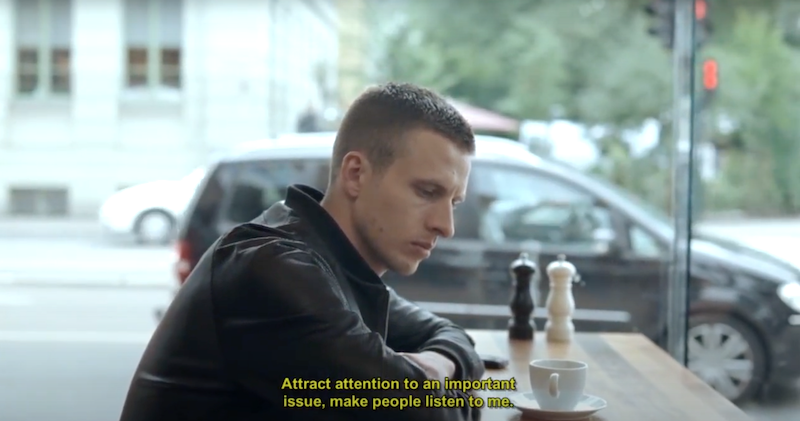
Attract attention to an important issue, make people listen to me.
It’s a risk maneuver for a story to shift focus to a character we haven’t met and won’t meet again. It will understandably baffle some viewers (see the Mad Men finale that boldly abandoned Don Draper during the climactic group therapy session). But when the technique works, as it does here, it pulls us into the first person perspective so strongly we feel like we can read Anders’ thoughts and feel his feelings, even without having him on screen. When an old man rides past the cafe on the bicycle holding a violin case we reflexively feel a pang because we know Anders can’t imagine living that long, let alone maintaining such a sense of purpose that he would be riding off to play a musical instrument. (another item that could easily slide onto the young lady’s bucket list)
When the young lady finished her list she smiles an unbearably poignant shy little smile. Her final item is a simple desire to “Be Loved” and we note that most people would settle for that and call it a win.
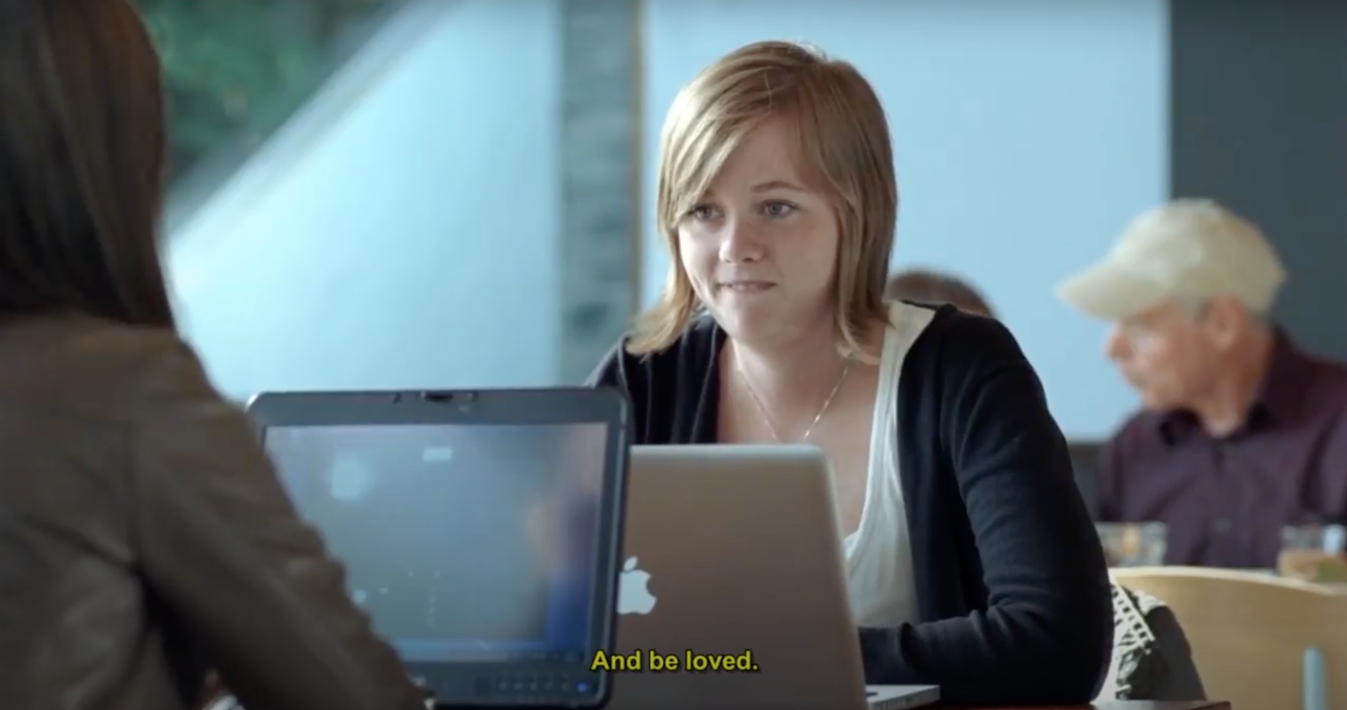
And be loved.
Previously on Season 2 of "The New Classics"
- The Handmaiden
- Capote
- The Descent
- Gosford Park
- Nightcrawler
- Two Days One Night
- The Witch
and... - Season 1 of The New Classics
Follow Michael on Twitter and Letterboxd



Reader Comments (7)
Wonderful mention, Michael. Absolutely stunning film, but strangely, I don’t remember this scene at all. I remember the park, and the final shot, but I remember how moving I found the whole film back in 2012. Thank you for writing this.
OMG what a joy to discover that this is the scene you picked. This scene blew me away when I first saw it. While I prefer Joachim Trier's debut "Reprise" this scene is I think the best scene in any of his films. Beautiful writeup.
Wasn't overly crazy about this film when I first saw it (I thought it was sort of listlessly rehashing Malle's "The Fire Within"), but this scene is doubtlessly the standout. I even chose that third frame (Anders out of focus in the foreground for a blog series I used to do on cinematic images being worth a thousand words.
I enjoyed this movie but I actually don't remember this scene. I really liked the passage with the voice-over where he describes his parents, their values.
THANK YOU! This is the best scene from what is one of my favourite films of the last decade - I continue to believe that this is one of the most underrated films of all time. Each scene is so brilliant by itself and even more beautiful together. Stunning film, really.
Just jumping back in to agree with everybody and affirm my love for this scene. I didn't even have to rewatch the scene to write this even though I hadn't watched Oslo since 2012. I never shook it.
(I did watch it after I was done writing to check myself)
I love this movie and I remember the scene when an old man rides past the cafe on the bicycle holding a violin case. I also suggested my viewers on Bike Reviews Hub to watch this movie. But I can't elaborate it the way you did. Excellent. Keep It up!